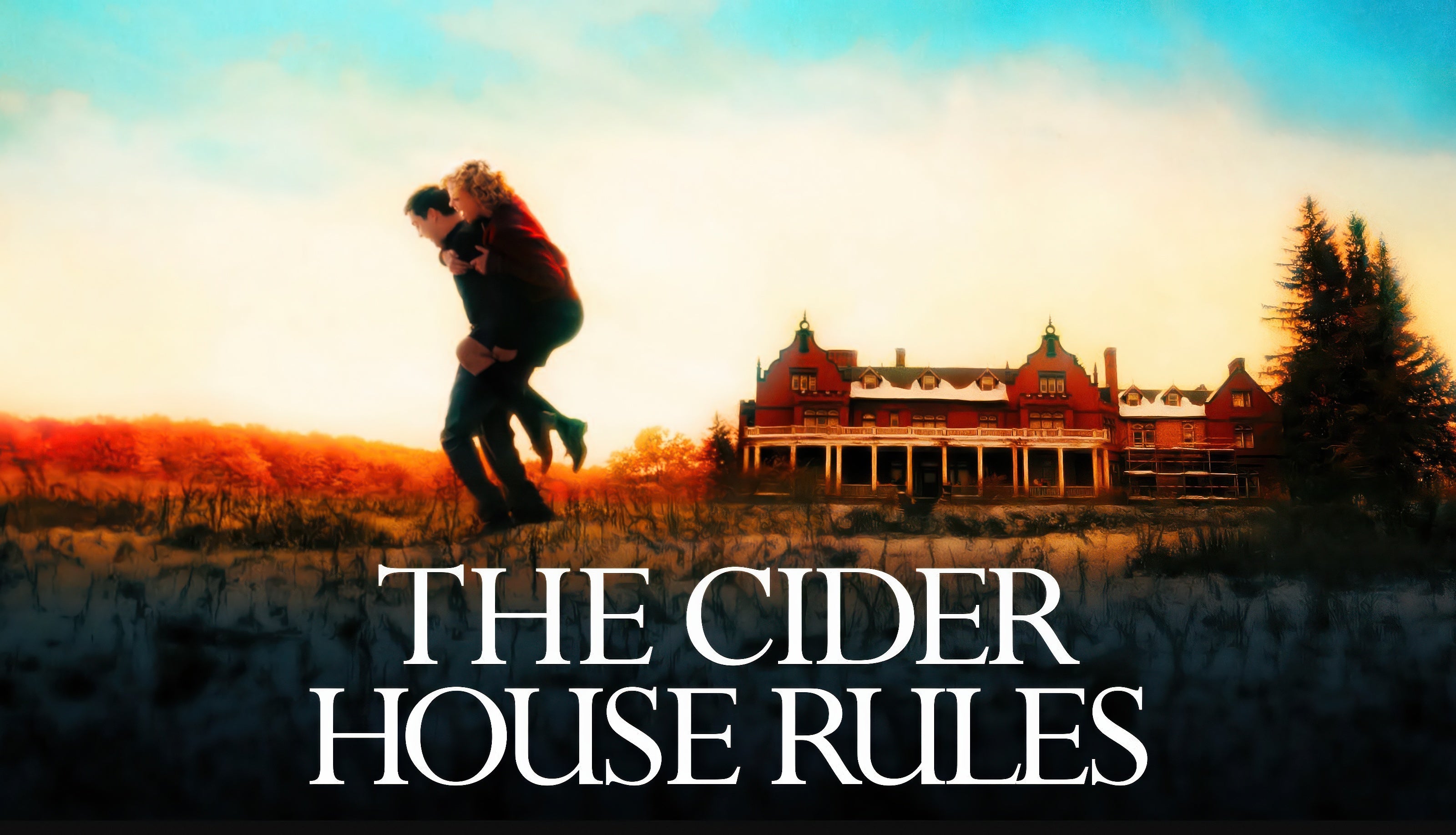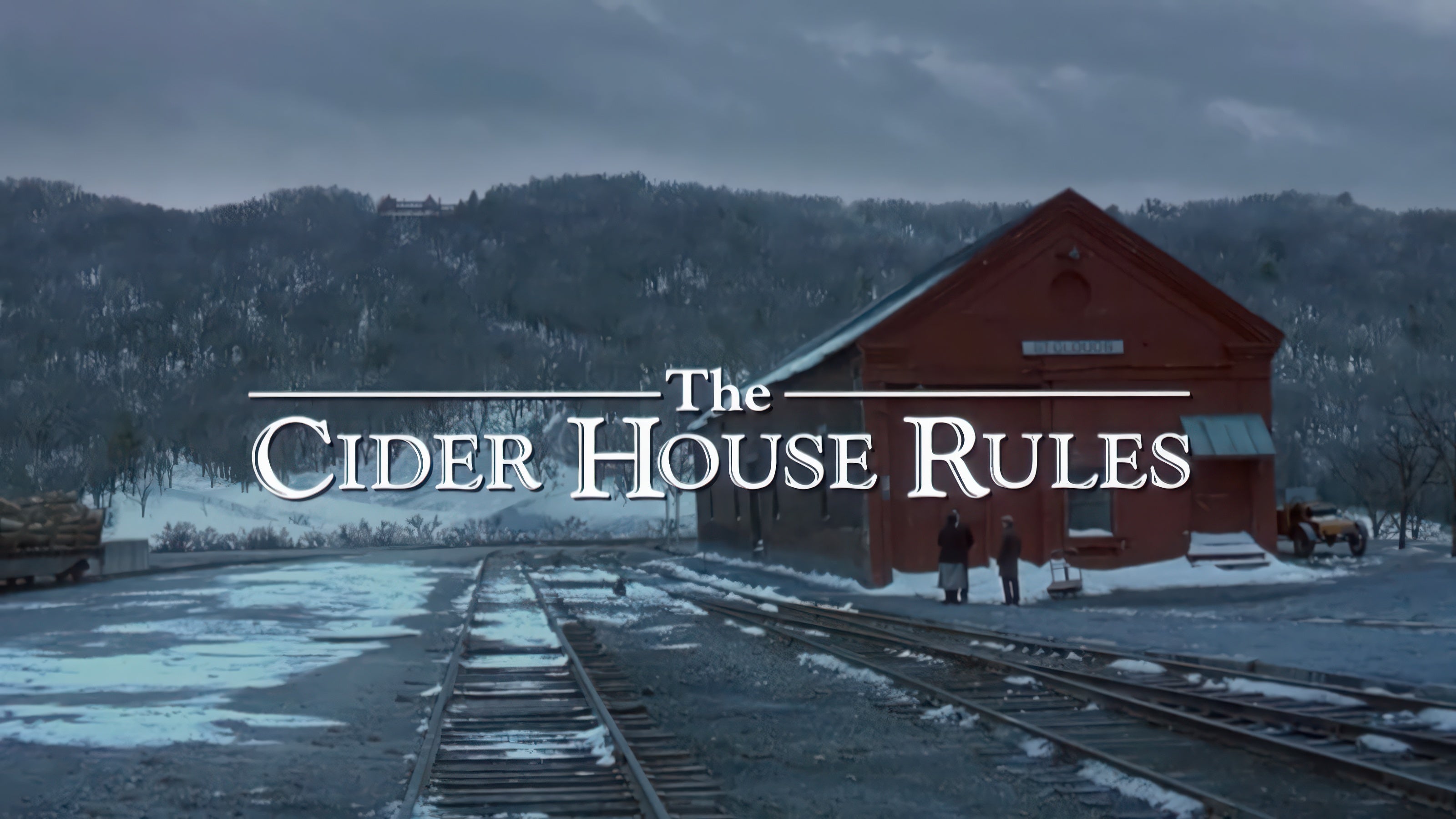
The Cider House Rules (Book to Screen)
Screenwriter John Irving had the formidable task of condensing his own 550-page novel into a 136-page script for the 1999 film The Cider House Rules.
He achieved this brilliantly – the script won the Oscar for Best Adapted Screenplay – by focusing the screenplay on the central conflict.
Central Conflict
The novel revolves around two main characters: Dr. Larch (played onscreen by Michael Caine, who won an Oscar for this film for Best Supporting Actor), an orphanage physician who performs illegal abortions, and his protégé, Homer Wells (an orphan Dr. Larch delivered, portrayed by Toby Maguire in the film) who refuses to perform abortions.
In the film, Homer becomes the main character. His goal in the book and the script remains the same: to avoid performing abortions (though he has be trained how) and to see and experience something more of the world than just the confines of St. Clouds Orphanage.
Irving sets up the central conflict immediately. He uses a montage over the opening credits to reveal Dr. Larch’s willingness to provide abortions and his personal feelings on the morale doctrine of the day, and establishes in the first scene of dialogue between Homer and Dr. Larch, Homer’s disdain for performing abortions.
Condensing Time & Plot
The plot of the novel is far more complex than the film adaptation. Irving removed any extraneous material that did not convey the central conflict or move Homer’s goal forward.
In the book, Homer remains away from the orphanage for 15 years, during which time, Wally and Homer become best friends, Wally and Candy marry, and Homer and Candy have an affair and a son together. Wally becomes aware of Homer and Candy’s tryst but remains friends with Homer. Homer’s and Candy’s son, Angel, falls in love with Rose Rose and discovers she has been impregnated by her own father.
In the novel, Homer has many more adventures than in the film – there is just no time for them in the movie. In the film, Homer only stays away from the orphanage for 15 months, Wally and Homer do not become best friends, the significance of the affair between Homer and Candy is diminished, and the two do not have a child together. Homer is the one who directly discovers Rose Rose is pregnant by Mr. Rose.
Eliminating & Creating Characters
A significant and powerful character in the novel is eliminated from the film. Melony is an older girl Homer meets in the orphanage. She introduces him to his first sexual experience and feelings of love, even eliciting a promise from him never to leave her. Of course, Homer later breaks this promise. Her elimination from the film may have to do with time limitations, but it also allows for Candy to become Homer’s first sexual experience. Candy becomes the sexual aggressor and, thereby, diminishes Homer’s culpability in the affair - making him more sympathetic to viewers.
The script jumpstarts with Homer as a young man, as compared to the novel which details Homer’s early life at the orphanage. The character of the orphan Buster did not exist in the novel and was created for the script to stand-in for Homer’s experiences as a young boy.
Loss of Backstory & Its Impact on the Viewer
In both the book and the script, Dr. Larch is an ether-addict. In the novel, Dr. Larch substitutes ether for sex. He is abstinent after only one sexual experience with a prostitute that left him with gonorrhea. He is using the ether to dull the pain associated with the disease. In the screenplay, that backstory is eliminated. The audience is not told why Dr. Larch sniffs ether. They may conclude that his work has left him a deeply sad and troubled man. In the film, he sniffs ether to numb his misery. The subtle change greatly affects the viewer’s perception of his character.
Creation of Dialogue
In the novel, most of the character’s thoughts are internal – for the film they must be expressed through dialogue.
The Turning Point & Resolution
In the novel and the film, it is the same turning point, or event, that causes Homer to return to the orphanage and take over as physician. When Homer realizes the he must perform an abortion for Rose Rose, he realizes he cannot deny the procedure for other women. He discovers where he belongs in the world, and what his “use” in the world is. Homer can never escape what Dr. Larch has taught him. His place is at St. Cloud’s.
Get the Book: Digital Book (Apple Books) | Audiobook (Apple Books)
Get the Movie: Digital Film (AppleTV)

































